Supporting a Young Couple’s Journey to First-Time Parenthood in Bangladesh
Supporting a Young Couple’s Journey to First-Time Parenthood in Bangladesh
By Jennifer Gardella
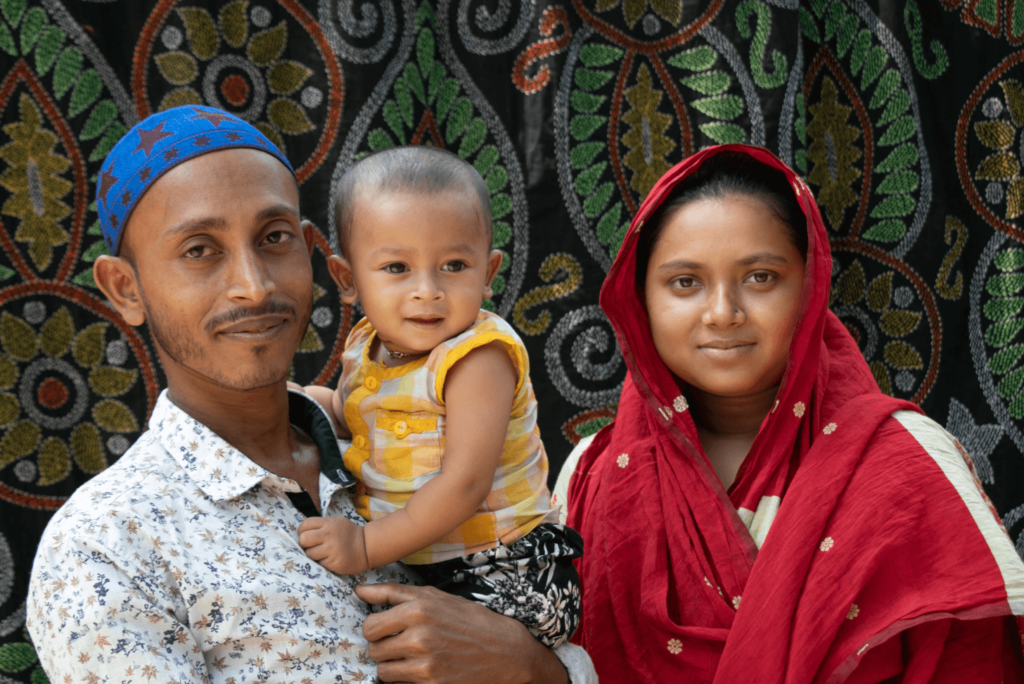
“When I first realized that I might be pregnant, there was joy, of course, but there was also an inner fear. I was happy, and my husband was happy, too. But at the same time, I had concerns.”
Shimla, a young mother in Bangladesh who recently welcomed her first child
Shimla and her husband live in the Tongi area of Gazipur District, an urban, industrial township near the capital city of Dhaka. Here, many women—especially young, first-time mothers like Shimla—tend to lack the awareness and agency to make informed decisions about their reproductive health. Due to a wide range of socioeconomic and cultural factors, women face many barriers to accessing maternal, newborn, and child health (MNCH) and family planning services; less than 3% of women and newborns in underserved urban areas like Tongi receive all the essential services they need to remain safe and healthy.
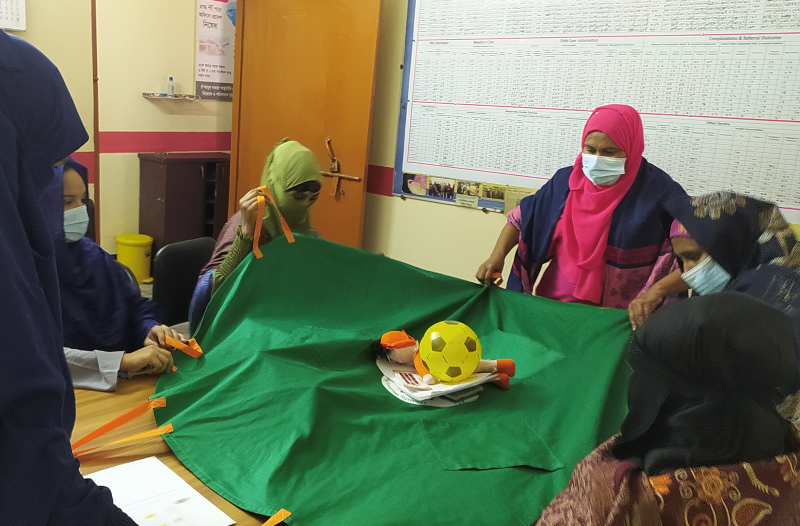
The Management Sciences for Health-led Healthy Women, Healthy Families project provides services that improve the quality, acceptability, and accessibility of care for young parents in these areas. Through local partner BRAC, the project leads group sessions for expectant and new mothers and fathers at health facilities to address some of these challenges and increase access to and uptake of antenatal care (ANC) and postnatal care (PNC) services.
Shimla learned about one of the project-supported health facilities from her sister-in-law. “She is the one who gave me advice, since she had been pregnant already,” she says. “I went to the maternity center after hearing from her about their services.” There, Shimla’s pregnancy was confirmed, and she was enrolled in an ANC group, along with five other pregnant women.
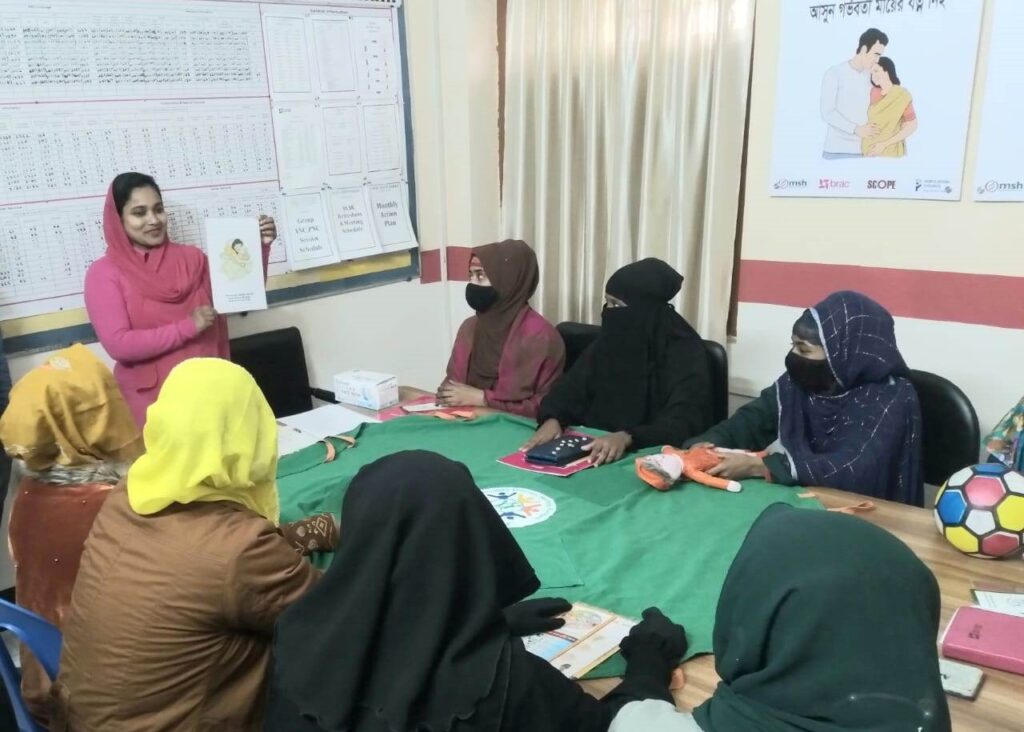
“I didn’t even know that there was a group for first-time mothers,” Shimla recalls. “The sessions were extremely beneficial for me.” Under the guidance of a midwife, Shimla and the other women learned how to take care of themselves during their pregnancies and when to see a health provider for any complications. “After the sessions, I was able to come home and relay this information to my mother-in-law and husband, who were then able to help make sure I got the support I needed.”
The group component of the project also provides the women with an opportunity to bond over their shared experiences. “We were able to discuss our challenges and worries and get advice from the midwife. We supported each other since we all understood each other.”
Shimla’s husband Billal similarly participated in group sessions geared toward helping men prepare to become fathers—an especially vital component of the intervention, given the low levels of knowledge and awareness among men about pregnancy and childbirth and the important role they play in decision-making and care-seeking behaviors in Bangladesh.
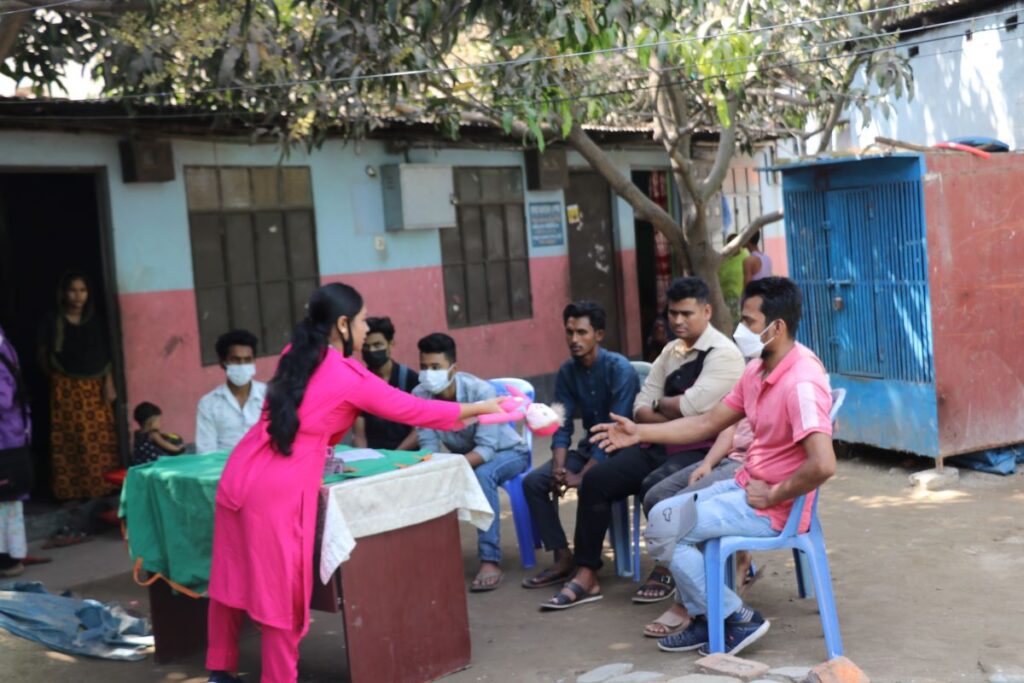
“As men, there are a lot of issues we do not talk about, but these sessions changed that. They provided me a space where I could learn how to fully support my wife,” Billal says. “We discussed what vaccines she needs, how much rest she requires during pregnancy, what her diet should consist of…. I had seen this information on television and on posters before, but these sessions explained it in the most effective way.” Shimla and Billal agreed that the groups were critical in helping them navigate their first pregnancy together as a couple and ensure the well-being of their baby.
Following each group ANC session, every woman receives an individual check-up from a medical officer to ensure that mother and baby are healthy. It was during one of these examinations that Shimla was diagnosed with severe anemia. “I was given medicines accordingly and was advised to eat specific foods to ensure my blood level was back on track. Thanks to these check-ups, I received the proper treatment at the correct time.”
Billal echoes his wife’s sentiments. “These prenatal check-ups were very important,” he says. “They helped us ensure that we could combat this problem to get Shimla healthy so she could be ready to give birth safely.”
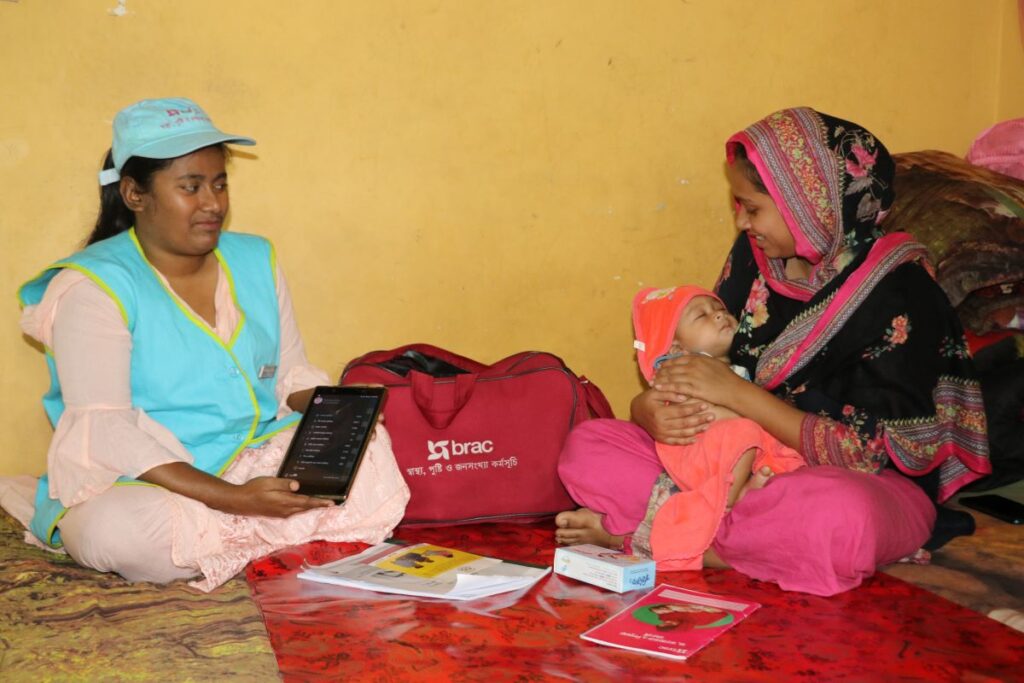
As soon as Shimla began to experience contractions, she and Billal knew that it was time to head to the health facility. During labor, midwives monitored her condition, staying with her and encouraging her when she felt fatigued. “In addition to my husband, there was always at least one midwife with me constantly who provided me support. The midwives suggested I keep hydrated, have some small healthy snacks, and move around a bit so the contractions were more bearable. They were really encouraging.”
After 12 hours of labor, Shimla gave birth to a healthy baby boy.
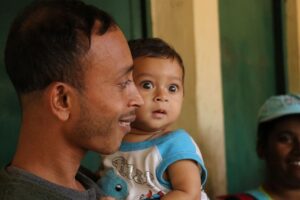
Mother and baby received a final check-up before being discharged from the health facility, but the support Shimla and Billal received did not stop there. After their baby was born, Shimla and Billal attended PNC group sessions designed to help first-time parents navigate the postpartum period. “I learned about a lot of topics in these sessions: vaccinations, personal hygiene during the postnatal period, breast-feeding and nutritional guidance, and post-partum danger signs,” Shimla says.
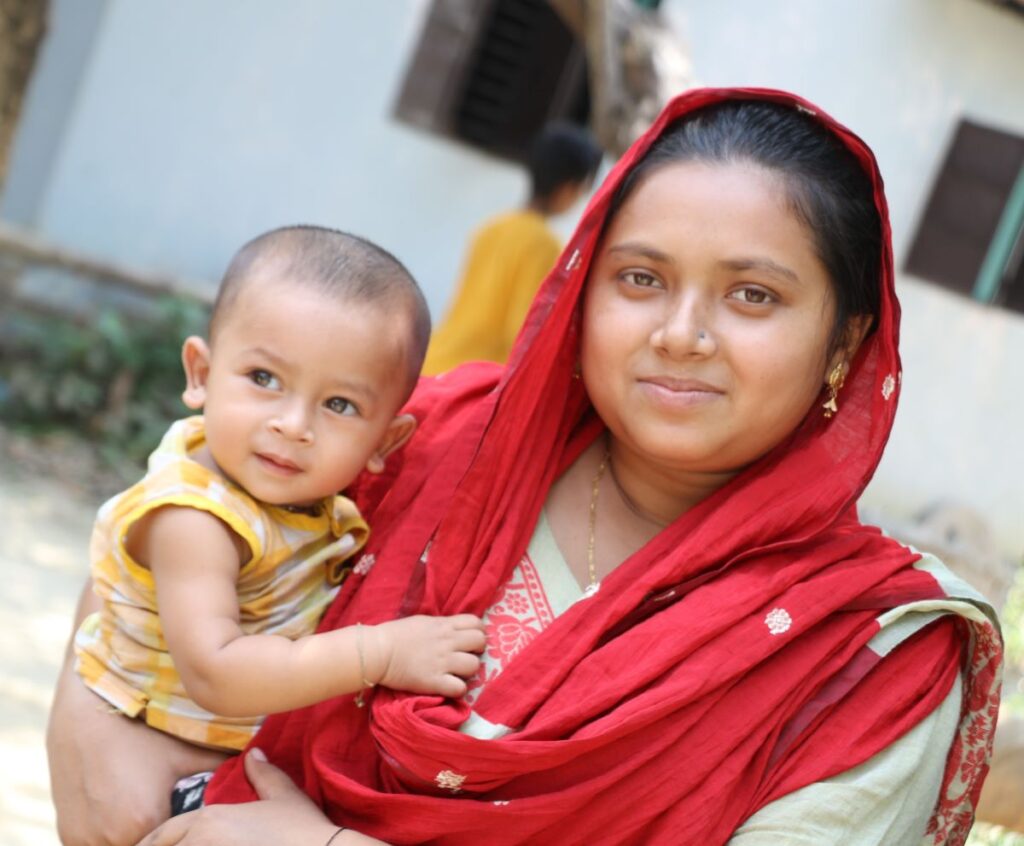
Although access to quality MNCH services remains challenging for many in Bangladesh, more women than ever can now receive the health care and support they need during pregnancy, childbirth, and new parenthood thanks to efforts like these. Since early 2022, the project has reached around 2,700 first-time mothers through more than 500 ANC and PNC groups. For Shimla, this made all the difference. “These sessions were necessary for the well-being of me and my baby. I could not have gained such professional information anywhere else,” she says. “I always tell people about my experience and the support I received. I always urge other women to participate in these group sessions—especially for the first-time mothers.”
The experience was also valuable for Billal, who is one of more than 1,300 men who have participated in the group sessions. “As a first-time father, they were extremely useful for me, as well,” says Billal. “I strongly recommend that men participate in [these sessions]. Not only will they gain knowledge themselves, but they will also learn how to support their wives and best take care of their families.”